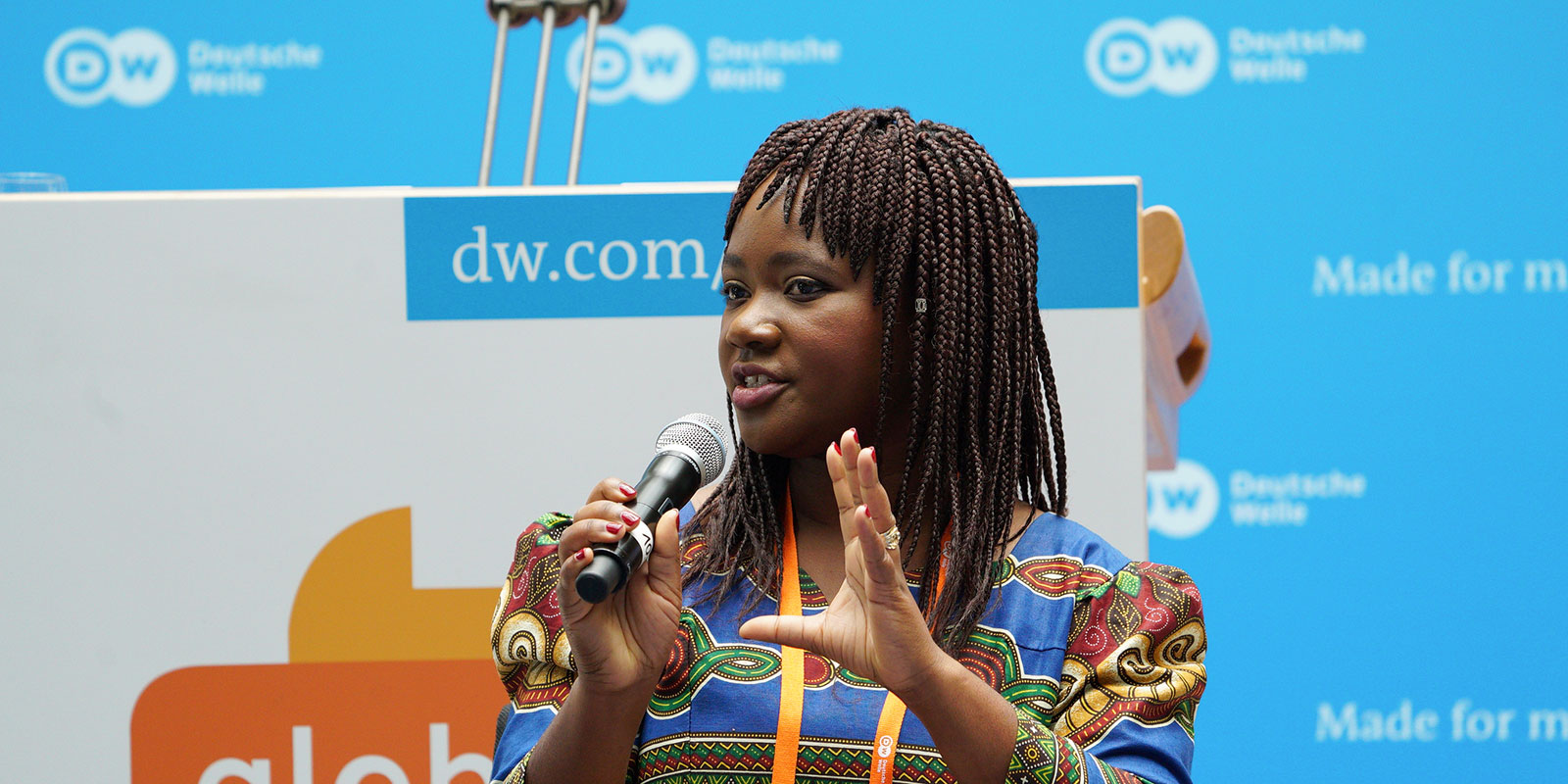Despite the many barriers to participation in high-level political discourse, youth continue to mobilise themselves on the ground, taking a collective stance on various issues, including peace and security. Organisations like the Southern African Youth Forum (SAYoF) have been at the forefront of bridging the gap between regional policy frameworks and youth voices.
Access to appropriate information can also help #SADC youth make critical decisions about their government’s responses to conflict to avoid being misled by propaganda @ReonVDM
Tweet
Peace & Security at the 3rd SADC Youth Forum
In 2019 SAYoF hosted the first SADC Youth Forum & SADC Youth Parliament in Dar es Salaam, Tanzania. The Forum is a youth-led initiative that speaks to the youth deficit in African governance by providing a formalised instrument through which young people can channel their inputs to SADC officials and platforms. This year the Forum corresponded with the Malawian SADC Chairship and was hosted online due to COVID-19 restrictions. On 12 August 2021 experts and youth from across SADC gathered virtually to discuss “The Inclusion of SADC Youth in Peace and Security” as part of the region’s 3rd SADC Youth Forum. At a time when the SADC region is facing unprecedented challenges in governance, peace and security, panellists and participants were urged to reflect on opportunities, challenges and inclusive strategies for youth in peacebuilding and conflict transformation.
Barrier To Youth Participation
During the discussions, key challenges that still hinder youth participation in peace and security work within SADC were highlighted. Common among these are narratives that youth in the region are part of the problem rather than the solution. Several panellists commented on the tendency for youth to be viewed as inexperienced with little to contribute to decision-making processes in many of the SADC countries.
Youth participation in important policy and advocacy spaces also remain restricted by barriers of government surveillance and repression, lack of access to relevant information and restrictions on adequate funding opportunities. These factors have all contributed to a general decline in youth-led civic engagement across Southern Africa, which raises concerns about the long-term role of the civil society sector in SADC. Additionally, the exclusion of youth from political processes as a notable threat to the long-term democratic stability of the region was also noted. The link between inclusive governance and long-term peace and security has been reaffirmed time and time again. Yet, despite the platitudes about empowering the youth, many southern African states are gripped in a culture of gerontocracy, where an older elite govern an increasingly younger populace. As Africa’s youth population is set to double by 2050, thinking critically about youth inclusion should be viewed as a security imperative for SADC.
Tweeting Truth to Power
Furthermore, the role of information in peacebuilding was emphasised. The failure of leaders in Mozambique to share appropriate information about the situation in Cabo Delgado in a timely manner was noted during discussions at the summit. Further, it was noted with concern that the Mozambican government had intentionally adopted a policy of denialism on the Cabo Delgado crisis since 2017, barring conventional media from openly speaking about the terrorist threat. This problem in Mozambique also parallels broader concerns about the growing tendency among African governments to limit and restrict internet and social media access as a response to perceived threats against the state. This often comes at the expense of authentically engaging with issues and grievances in an open and transparent manner.
Access to appropriate information can also help youth make critical decisions about their government’s responses to conflict to avoid being misled by propaganda. Social media offers a unique space for young peacebuilders and activists to meet like-minded peers and also lobby leaders directly. This assertion is evidenced by sharing how activists in Mozambique made use of the #CaboDelgadoIsAlsoMozambique campaign to successfully lobby for a more proactive stance from the government towards the plight of north Mozambicans. For these reasons, it becomes imperative for youth in SADC to demand their rights to free access to information and online platforms.
Beyond Deliberation
Platforms like the SAYoF help to legitimise youth voices on important issues and allow for more coordinated advocacy. SAYoF has used the deliberations of past Forums to promote youth voices and projects which address issues of peace and security. These include Intergenerational Dialogues in Southern Africa hosted in partnership with the AU Youth Envoy and ACCORD, training sessions on interreligious dialogues for youth in partnership with the International Dialogue Centre (KAICIID) and the “SADC Youth for Peace” project launched in 2019. Each year the SADC Secretariat also receives the recommendations and inputs from the Forum prior to the SADC Heads of States and Government Summit. These form part of further youth-focused and youth-led initiatives developed by SAYoF and its partners in the region.
Following the 3rd SADC Youth Forum, SAYoF will be submitting key recommendations from the different sessions to the SADC Secretariat for further advocacy and consultations. Through these engagements, the SADC youth continue to lead the cause for people-centred regional governance, breaking barriers one young leader at a time.
Reon Van Der Merwe is Head of the 3rd SADC Youth Forum Technical Committee.


